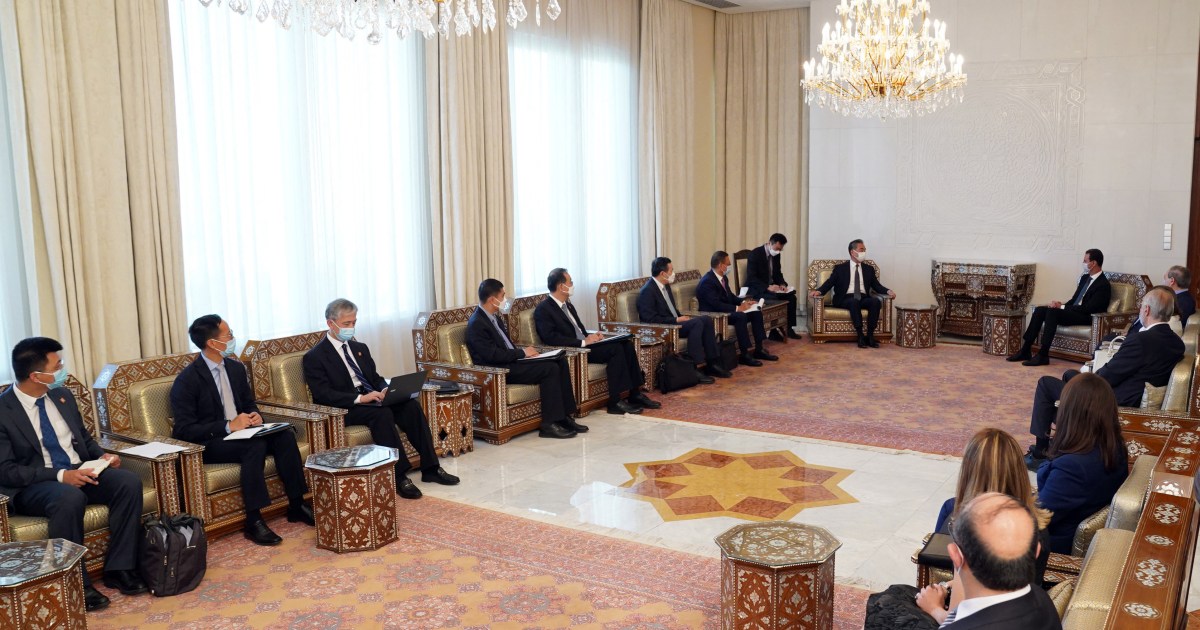The Guardian's Middle East correspondent writes that the Syrian economy is in ruins, and that China is waiting for an opportunity.
Martin Shulov commented in his analysis that the war may be starting to fade, but with Assad in office for another seven years, the country will remain divided.
The reporter pointed out that Bashar al-Assad declared after taking the oath that he is the only man who can rebuild Syria.
And his first foreign guest, Chinese Foreign Minister Wang Yi, seemed to bolster his claim, supporting the president's victory in the May elections, which Britain and the European Union described as "not free and unfair", and pointing to assistance in completing the task of rebuilding Syria.
Shulov hinted that China's prominent role in post-war Syria is directly inspired by the rules of the game that it plays elsewhere in the Middle East, as well as in Asia and Africa, which is based on exceptional investments in exchange for creating local opportunities and global cover.
However, he noted what analysts and diplomats say, even with relative calm, Syria will offer poor returns for years to come.
With the war over in most parts of the country, its heavily sanctioned economy is in greater ruins even than its cities and towns, especially as its global standing has been torn apart by a harsh decade of conflict.
China's prominent role in post-war Syria is directly inspired by the rules of the game played elsewhere in the Middle East, Asia and Africa, which are based on exceptional investments in exchange for local opportunities and global cover
For these analysts and diplomats, the hope for a political breakthrough hinges on the removal of the same leader who has just been re-elected for another seven years.
The reporter stated that reconstruction was central to the plans of Syria's allies: Russia and Iran, and now China, which has maintained a less involved policy throughout the fighting, is waiting for the opportunity.
Its successes in the Middle East are steady and cautious, and extended to acquiring stakes in Iraq's oil fields and in the UAE's vital infrastructure.
As the United States leaves Afghanistan and prepares to leave Iraq after former US President Donald Trump abruptly abandoned northeastern Syria 18 months ago, the rest of the country looked like a quick victory for Chinese diplomats.
As a former British diplomat with experience in Beijing and the Middle East said, "They know a void when they see it, especially if it involves taking advantage of US mistakes."
However, a Middle Eastern diplomat said, "China has to look around. It thinks this is an extension of the new Silk Road, but it's an illusion, and Syria is a poor investment for it."
The reporter concluded with what a European envoy to Syria said that reconstruction is likely to remain unrealistic despite China's enthusiasm.
"No one is coming to invest the hundreds of billions of euros and dollars - or rubles and renminbi - needed to rebuild the country under these horrific conditions," he added. "Investors primarily need to be reassured that their investments will be safe, and this has nothing to do with imposing Western values or conditions, It's just common business logic wherever you go, and this regime has gone to extraordinary lengths to convince the whole world that Syria is nothing but a bad business."

